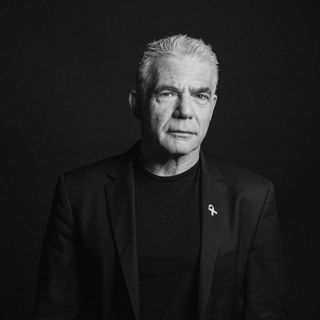
Biden Loosens Up on Weed
For half a century, the federal government has treated marijuana as one of the more dangerous drugs in the United States. On Tuesday, the Biden administration signaled a significant shift in approach.Zolan Kanno-Youngs, a White House correspondent for The Times, explains how big an impact the proposed changes could have.Guest: Zolan Kanno-Youngs, a White House correspondent for The New York Times.Background reading: The Biden administration’s effort to liberalize marijuana policy comes as increasingly more Americans favor legalizing the drug.After the recommendation to ease restrictions, Democrats in the Senate reintroduced legislation to legalize marijuana.For more information on today’s episode, visit nytimes.com/thedaily. Transcripts of each episode will be made available by the next workday. Subscribe today at nytimes.com/podcasts or on Apple Podcasts and Spotify. You can also subscribe via your favorite podcast app here https://www.nytimes.com/activate-access/audio?source=podcatcher. For more podcasts and narrated articles, download The New York Times app at nytimes.com/app.
2 Mai 202426min

The New Abortion Fight Before the Supreme Court
As the presidential race moves into high gear, abortion is at the center of it. Republican-controlled states continue to impose new bans, including just this week in Florida.But in Washington, the Biden administration is challenging one of those bans in a case that is now before the Supreme Court, arguing that Idaho’s strict rules violate a federal law on emergency medical treatment.Pam Belluck, a health and science reporter at The Times, and Abbie VanSickle, who covers the Supreme Court, explain how the federal law, known as EMTALA, relates to abortion, and how the case could reverberate beyond Idaho. Guests: Pam Belluck, a health and science reporter for The New York Times.Abbie VanSickle, who covers the Supreme Court for The New York Times.Background reading: Here’s a guide to the Emergency Medical Treatment and Labor Act, the federal law at the heart of the case.And here are five takeaways from the Supreme Court arguments on Idaho’s abortion ban.For more information on today’s episode, visit nytimes.com/thedaily. Transcripts of each episode will be made available by the next workday. Subscribe today at nytimes.com/podcasts or on Apple Podcasts and Spotify. You can also subscribe via your favorite podcast app here https://www.nytimes.com/activate-access/audio?source=podcatcher. For more podcasts and narrated articles, download The New York Times app at nytimes.com/app.
1 Mai 202433min

The Secret Push That Could Ban TikTok
American lawmakers have tried for years to ban TikTok, concerned that the video app’s links to China pose a national security risk.Sapna Maheshwari, a technology reporter for The Times, explains the behind-the-scenes push to rein in TikTok and discusses what a ban could mean for the app’s 170 million users in the United States.Guest: Sapna Maheshwari, who covers TikTok, technology and emerging media companies for The New York Times.Background reading: A tiny group of lawmakers huddled in private about a year ago, aiming to bulletproof a bill that could ban TikTok.The TikTok law faces court challenges, a shortage of qualified buyers and Beijing’s hostility.Love, hate or fear it, TikTok has changed America.For more information on today’s episode, visit nytimes.com/thedaily. Transcripts of each episode will be made available by the next workday. Subscribe today at nytimes.com/podcasts or on Apple Podcasts and Spotify. You can also subscribe via your favorite podcast app here https://www.nytimes.com/activate-access/audio?source=podcatcher. For more podcasts and narrated articles, download The New York Times app at nytimes.com/app.
30 Apr 202425min

Trump 2.0: What a Second Trump Presidency Would Bring
In a special series leading up to Election Day, “The Daily” will explore what a second Trump presidency would look like, and what it could mean for American democracy.In the first part, we will look at Tump’s plan for a second term. On the campaign trail, Trump has outlined a vision that is far more radical, vindictive and unchecked than his first one.Jonathan Swan and Maggie Haberman, political correspondents for The Times, and Charlie Savage, who covers national security, have found that behind Trump’s rhetoric is a highly coordinated plan, to make his vision a reality.Guest:Jonathan Swan, who covers politics and Donald Trump’s presidential campaign for The New York Times.Maggie Haberman, a senior political correspondent for The New York Times.Charlie Savage, who covers national security and legal policy for The New York Times.Background reading: Why a second Trump presidency may be more radical than his first.No major American presidential candidate has talked like Trump now does at his rallies — not Richard Nixon, not George Wallace, not even Donald Trump himself.For more information on today’s episode, visit nytimes.com/thedaily. Transcripts of each episode will be made available by the next workday. Subscribe today at nytimes.com/podcasts or on Apple Podcasts and Spotify. You can also subscribe via your favorite podcast app here https://www.nytimes.com/activate-access/audio?source=podcatcher. For more podcasts and narrated articles, download The New York Times app at nytimes.com/app.
29 Apr 202446min

Introducing ‘The Interview’: Yair Lapid Says the World Misunderstands Israel
Frustrated at the growing protest movement, the opposition leader defends his country’s “existential” war. For more on the show, please visit nytimes.com/theinterview. Subscribe today at nytimes.com/podcasts or on Apple Podcasts and Spotify. You can also subscribe via your favorite podcast app here https://www.nytimes.com/activate-access/audio?source=podcatcher. For more podcasts and narrated articles, download The New York Times app at nytimes.com/app.
28 Apr 202441min

Introducing ‘The Interview’: Anne Hathaway Is Done Trying to Please
On the debut of ’The Interview,' the actress talks to David Marchese about learning to let go of other people’s opinions. For more on the show, please visit nytimes.com/theinterview. Subscribe today at nytimes.com/podcasts or on Apple Podcasts and Spotify. You can also subscribe via your favorite podcast app here https://www.nytimes.com/activate-access/audio?source=podcatcher. For more podcasts and narrated articles, download The New York Times app at nytimes.com/app.
27 Apr 202443min

Harvey Weinstein Conviction Thrown Out
When the Hollywood producer Harvey Weinstein was convicted of sex crimes four years ago, it was celebrated as a watershed moment for the #MeToo movement. Yesterday, New York’s highest court of appeals overturned that conviction.Jodi Kantor, one of the reporters who broke the story of the abuse allegations against Mr. Weinstein in 2017, explains what this ruling means for him and for #MeToo.Guest: Jodi Kantor, an investigative reporter for The New York Times.Background reading: The verdict against Harvey Weinstein was overturned by the New York Court of Appeals.Here’s why the conviction was fragile from the start.For more information on today’s episode, visit nytimes.com/thedaily. Transcripts of each episode will be made available by the next workday. Subscribe today at nytimes.com/podcasts or on Apple Podcasts and Spotify. You can also subscribe via your favorite podcast app here https://www.nytimes.com/activate-access/audio?source=podcatcher. For more podcasts and narrated articles, download The New York Times app at nytimes.com/app.
26 Apr 202421min

The Crackdown on Student Protesters
Columbia University has become the epicenter of a growing showdown between student protesters, college administrators and Congress over the war in Gaza and the limits of free speech.Nicholas Fandos, who covers New York politics and government for The Times, walks us through the intense week at the university. And Isabella Ramírez, the editor in chief of Columbia’s undergraduate newspaper, explains what it has all looked like to a student on campus.Guest: Nicholas Fandos, who covers New York politics and government for The New York TimesIsabella Ramírez, editor in chief of the Columbia Daily SpectatorBackground reading: Inside the week that shook Columbia University.The protests at the university continued after more than 100 arrests.For more information on today’s episode, visit nytimes.com/thedaily. Transcripts of each episode will be made available by the next workday. Subscribe today at nytimes.com/podcasts or on Apple Podcasts and Spotify. You can also subscribe via your favorite podcast app here https://www.nytimes.com/activate-access/audio?source=podcatcher. For more podcasts and narrated articles, download The New York Times app at nytimes.com/app.
25 Apr 202438min





















